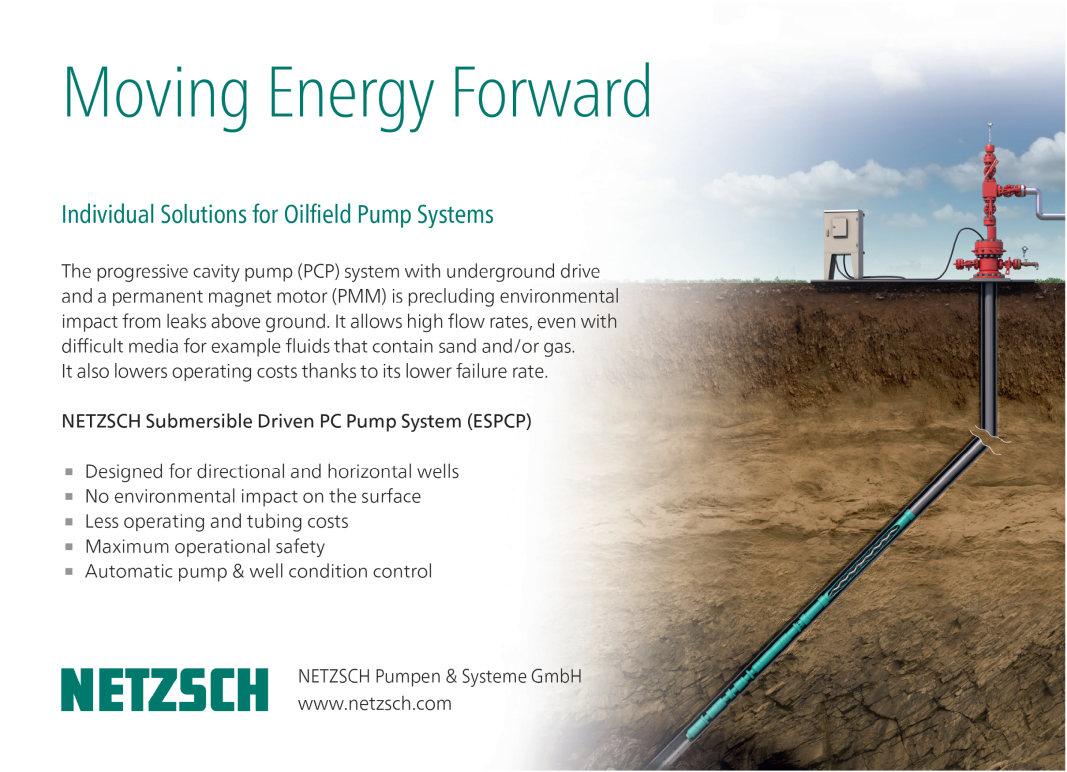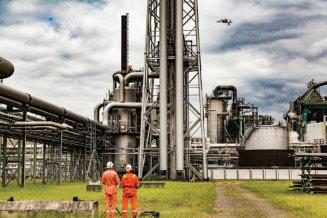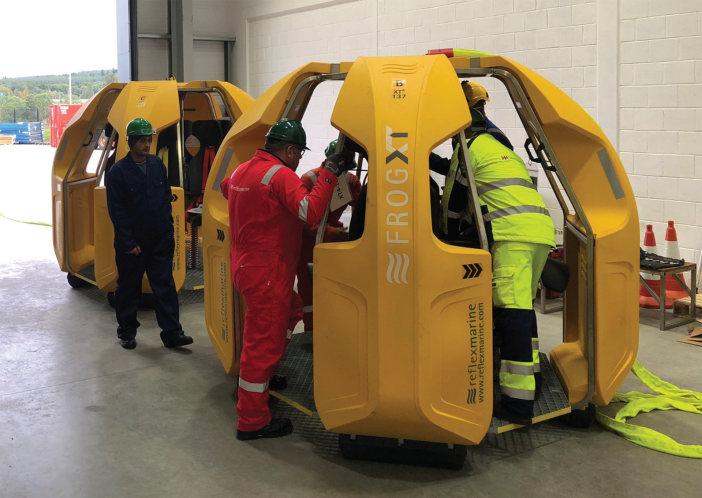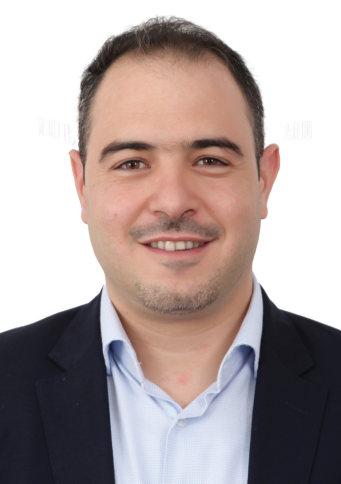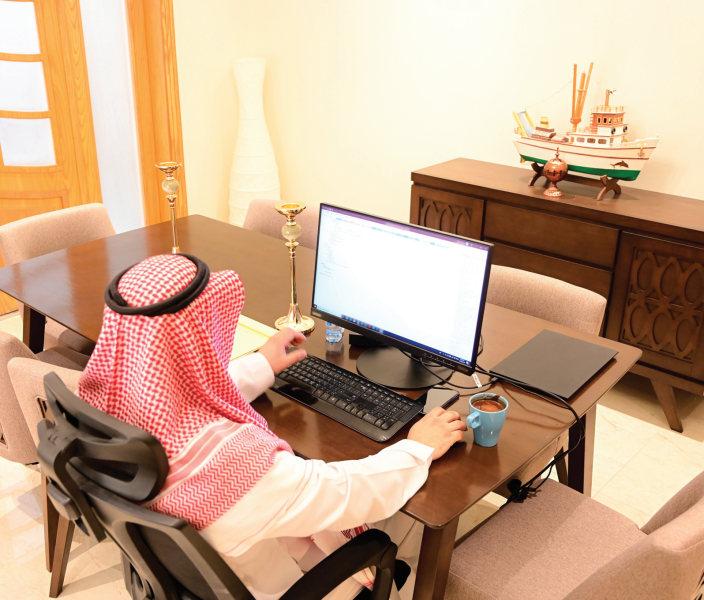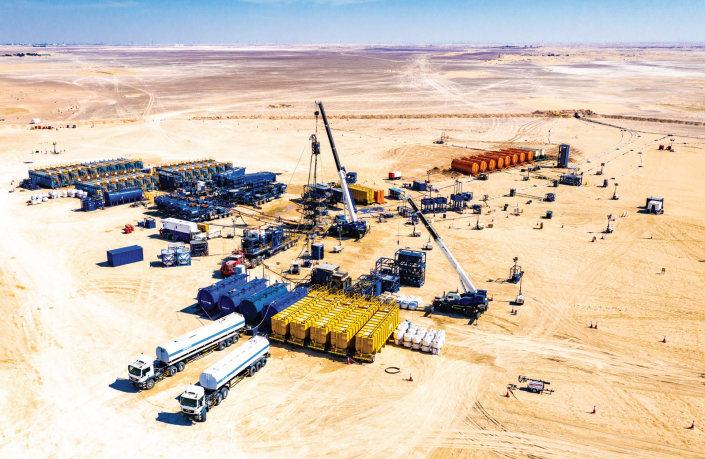
8 minute read
Shaping the energy sector post
Shaping the energy sector post-COVID-19
Held under the patronage of the UAE President His Highness Sheikh Khalifa Bin Zayed Al Nahyan, and hosted by the Abu Dhabi National Oil Company (ADNOC), the ADIPEC Virtual Conference will provide a platform for the thought leadership that will frame the future oil and gas landscape.
THE ADIPEC VIRTUAL Conference will run from 9-12 November and will feature more than 135 sessions, with over 700 renowned speakers and 115 technical sessiosn, giving attendees access to world-class industry content. The virtual exhibition will host more than 100 companies.
Omar Suwaina Al Suwaidi, chairman of ADIPEC, said, “ADIPEC is regarded as the premier thought leadership event within the oil and gas industry, bringing together industry leaders and renowned technical experts to discuss, debate and to share ideas. Despite facing unprecedented challenges in 2020, our industry has shown remarkable flexibility, commitment and a strong resilience in responding to adverse market conditions. As we continue to meet the global demand for energy, I am confident that ADIPEC will provide many new opportunities for collaboration and innovation as we respond to new realities throughout global markets.”
During the ADIPEC Virtual Conference more than 70 government ministers, CEOs, global business leaders and industry specialists will focus on how the energy sector is responding and adapting to the COVID-19 pandemic. Against a backdrop of the complex dynamics that have impacted global markets, they will provide perspectives on how the industry can build future resilience and engage with the challenges and opportunities of the energy transition.
Confirmed speakers include: H.E. Dr Sultan Ahmed Al Jaber, UAE Minister of Industry and Advanced Technology and Group CEO of the
ADIPEC 2020 conferences will take place virtually.
Abu Dhabi National Oil Company (ADNOC); H.E. Suhail Mohamed Al Mazrouei, UAE Minister of Energy and Infrastructure; H.E. Mohammad Sanusi Barkindo, secretary general, OPEC; Joseph McMonigle, secretary general, International Energy Forum; Patrick Pouyanné, chairman and CEO, Total; Bernard Looney, CEO of BP; Claudio Descalzi, CEO, Eni; Takayuki Ueda, president and CEO, INPEX Corporation; Mario Mehren, CEO, Wintershall DEA; Philippe Boisseau, CEO, Cepsa; Meg Gentle, president and CEO, Tellurian and Hajime Wakuda, president of the Japan Oil, Gas and Metals National Corporation.
This year marks the 10th anniversary of the ADIPEC Awards as industry leaders honour the people, projects and ideas that continue to shape the future of the oil and gas industry. This year’s event will be held online in a virtual ceremony on 9 November.
Fatema Al Nuaimi, chairperson of the ADIPEC Awards and CEO of ADNOC LNG, said,“The winners represent the very best of the global oil and gas industry. Today, more than ever, our industry needs new ideas and cutting-edge thinking from individuals, projects and companies like those taking part in these awards. The ADIPEC Award entries all demonstrate new ways of working, breaking down barriers and driving positive
change during these challenging times. I would like to congratulate everyone who submitted, as well as the winners.”
Alongside the virtual conference programme, the technical conference organised by the Society of Petroleum Engineers will bring together technical leaders, who are at the forefront of the post-pandemic economic recovery. The expanded ADIPEC Virtual Downstream Technical Conference, organised by dmg events, will explore the role of Artificial Intelligence (AI) and digitalisation in refining and petrochemicals; decarbonisation; the future workforce; energy security, efficiency and management; and the future impact of the downstream on the circular economy.
Christopher Hudson, Global Energy president, dmg events, said, “The ADIPEC Virtual Conferences and exhibition will enable the oil and gas industry to forge new models of strategic partnerships and reinforce the strong connections and long-lasting business relationships necessary to break from old conventions and create tangible value in a post-pandemic energy landscape.
“In tandem with our partners, dmg events is committed to ensuring ADIPEC remains at the heart of the global oil and gas landscape.” n
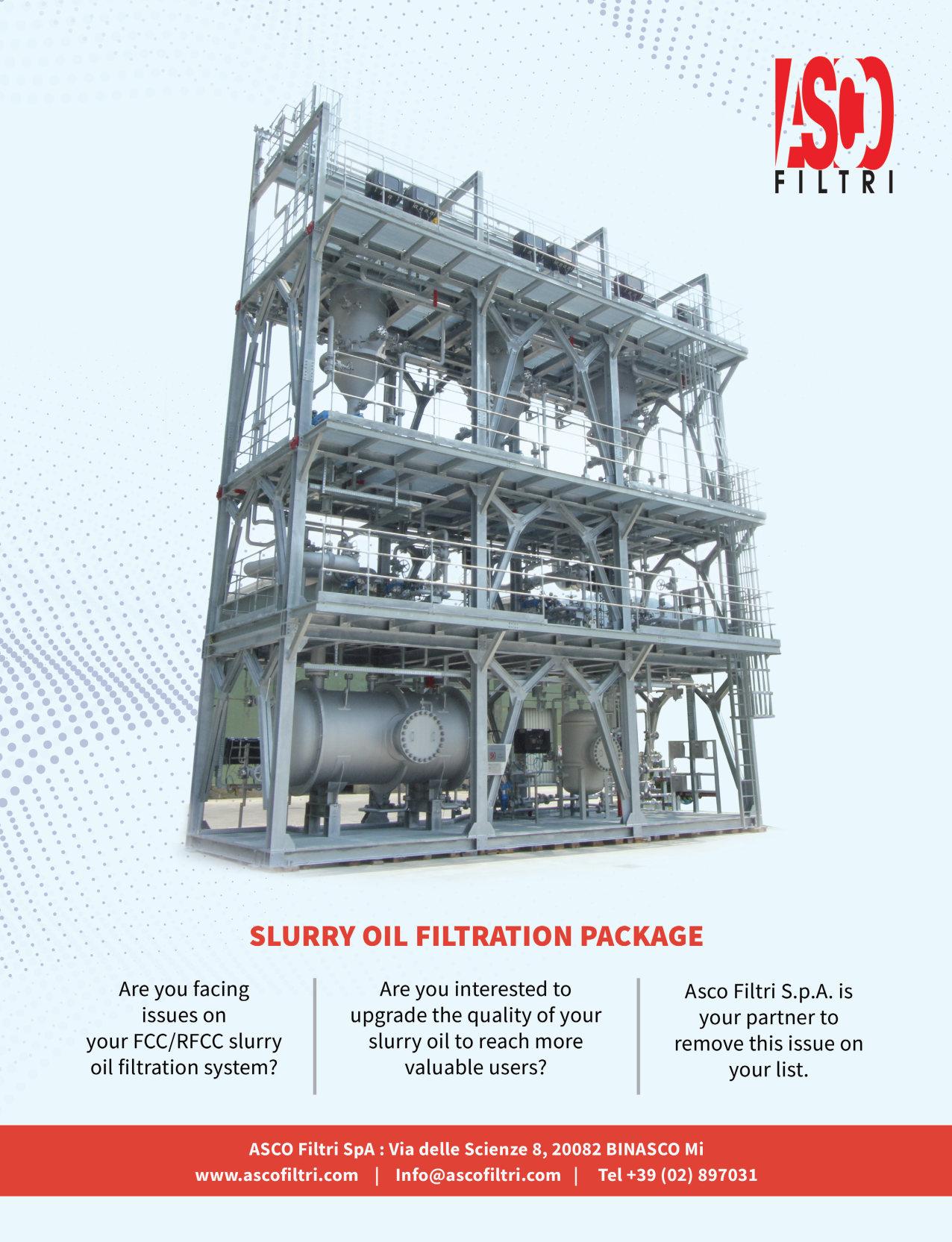
Responding and adapting to
COVID-19
The ADIPEC Virtual Strategic Conference will focus on how the energy sector is responding and adapting to the COVID-19 pandemic against a backdrop of rapidly increasing pressure to become more sustainable.
ADIPEC WILL FOCUS on five pillars, each providing a critical element of insight into understanding the challenges and tasks facing energy sector leaders over the coming months and years:
Future energy supply and demand: new assumptions and perspectives on future trajectories
The oil and gas industry was paralysed by a combination of a sharp downturn in energy demand – brought on by COVID related lockdowns and the associated deep global economic recession, and oversupply. As the energy sector seeks to recover, it faces huge uncertainties, the eventual outcome of which will shape global balances and investment strategies over the course of the next decade.
Building future business resilience through technology, innovation and partnerships
Shocks – both short-term in the form of COVID-19, and long-term in the form of the energy transition – are challenging the industry’s profitability and its ability to create sustained value for investors and governments. New approaches are required for a sector where "cheaper, cleaner, more efficient" will become the standard for business resilience and operational success:
The geopolitics of energy
The COVID-19 pandemic has had profound implications for energy supply and demand. Beyond energy it has also compounded the megatrend of deglobalisation that has changed the international operating systems. Trends that had been evident for a number of years have been accelerated, with the emergence of new energy leaders, new patterns of trade, and new national security concerns. These factors will shape the energy sector in the coming years, determining the stability of energy trade and prices.
The ADIPEC Strategic Conference will provide a forum to discuss the challenges facing energy leaders.
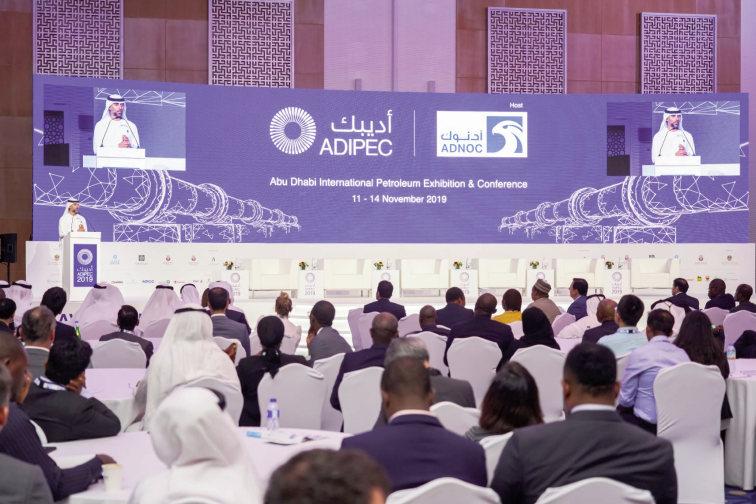
Environmental and social governance and the oil and gas industry in a post-pandemic world
Climate and sustainability concerns pose a challenge to energy industry norms. Business as usual is no longer an option in a sector that is front and centre of the energy transition. If the public and private sectors are to maintain the social license to operate, business practices must adapt, and long-term operations must change.
Workforce of the future: positioning for success in times of change
Demographics, changing views of the energy industry, climate concerns and gender imbalance are all impacting the sector’s workforce and the availability of talent around the world. In the western hemisphere, in particular, attracting and retaining the best and the brightest is becoming an increasing challenge. Industry leaders will require new, innovative strategies to maintain and ensure a long-term supply of talent in the sector.
These issues will be addressed by ministers, CEOs and global energy leaders through keynote addresses and panel sessions. Distinguished speakers include HE Dr Sultan Rahmed Al Jaber, UAE Minister of Industry and Advanced Technology, and Group CEO of ADNOC; HE Suhail Mohamed Al Mazrouei, UAE Minister of Energy and Infrastructure; energy ministers from Saudi
Arabia, Bahrain, Russian Federation, Arab Republic of Egypt, Jordan, Iraq, Indonesia, Senegal and Nigeria; HE Mohammed Barkindo, secretary general of OPEC; Joseph McMonigle, secretary general of the International Energy Forum; Patrick Pouyanné, chairman and CEO, Total; Bernard Looney, CEO bp; Omar Suwaina Al Suwaidi, chairman of ADIPEC; Dai Houliang, chairman of CNPC; Claudio Descalzi, CEO, eni; Meg Gentle, president and CEO, Tellurian; Vicky Hollub, president and CEO, Occidental; Lorenzo Simonelli, president and CEO, Baker Hughes; and Girish K. Saligram, president and CEO, Weatherford. n
Companies put themselves in a defensive mode when they should have deployed and promoted innovative technology.” Oil demand set to peak in 2030, predicts Mubadala’s CEO of Petroleum and Resources
GLOBAL DEMAND FOR oil is likely to peak around 2030, as the world recovers from the impact of COVID-19, according to Musabbeh Al Kaabi, CEO of Petroleum and Resources at the UAE’s Mubadala Investment Company.
In a wide-ranging interview, conducted as part of the on-line ADIPEC Energy Dialogue series, Al Kaabi shared his outlook on the recovery of oil and gas markets and the long term impact of demand post COVID-19 on energy supply and demand.
Al Kaabi said the post COVID-19 world will be totally different, with fewer people travelling and lower activity in a number of economic sectors. And, while demand for energy will edge back to 2019 levels, some sectors, such as jet fuel, will take longer to recover than others.
“COVID-19 has created a major disruption to demand, and we expect to see the continuation of that disruption in 2021. But if you project the horizon to 2030, we will go back to an acceptable level of growth, potentially peaking in 2030,” said Al Kaabi.
Addressing concerns over future supply issues, Al Kaabi said climate change pressures, concerns over ESG and government policies are impacting the investment decisions by big international oil companies, which could result in episodes of disruption of supply. But, he added, this would create space for national and privately-owned oil companies to invest in the upstream sector.
Al Kaabi added that national and international oil companies should learn from history and be more proactive in dealing with the decarbonisation of their operations. "In the past companies put themselves in a defensive mode when they should have deployed and promoted innovative technology to minimise the carbon footprint of their production.I see a similar trend in the petrochemicals sector, where it is critical companies address the plastics waste issue and not be in a state of denial," Al Kaabi said.
